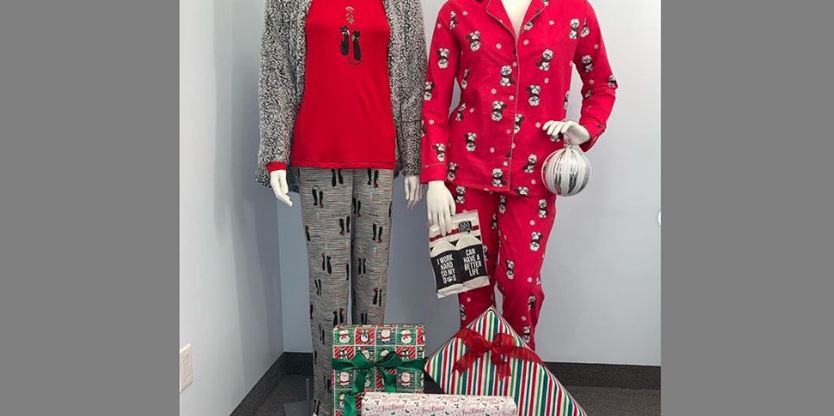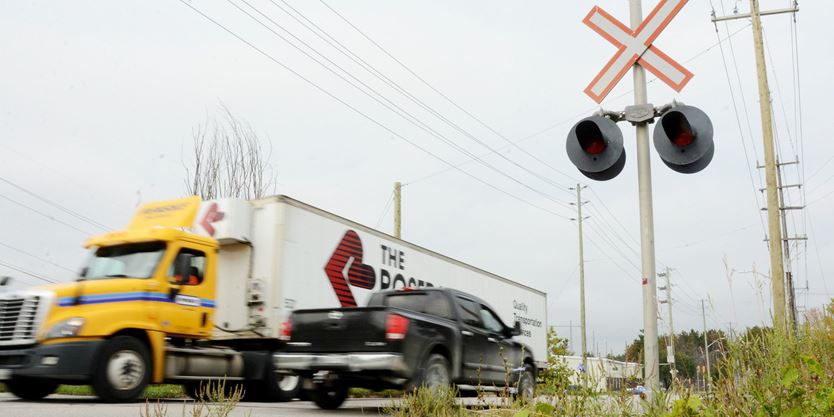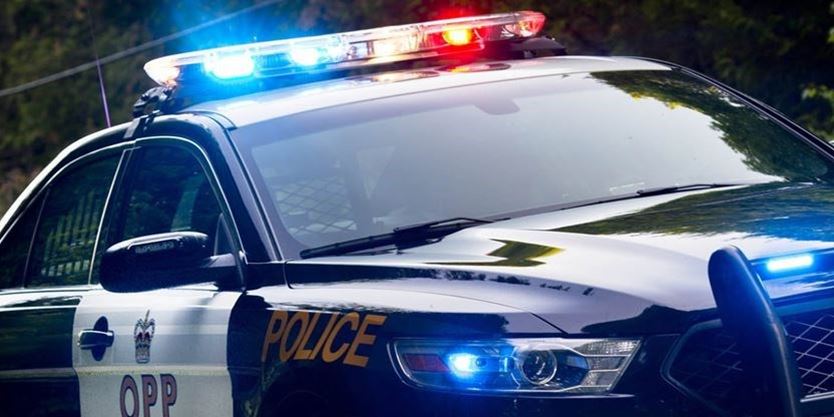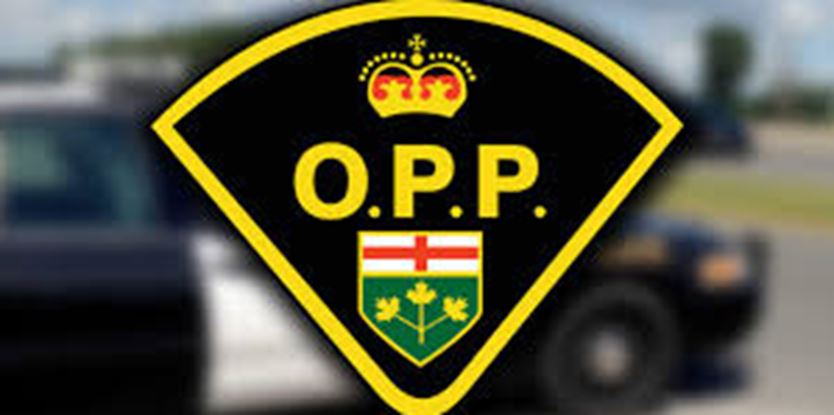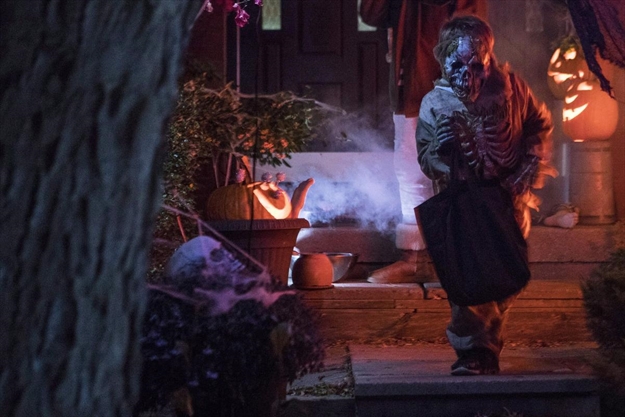The latest news from Canada and around the world Saturday. This file will be updated throughout the day. Web links to longer stories if available.
9:19 p.m.: Ontario Premier Doug Ford is leaving the door open for bodychecking to remain in the Ontario Hockey League for the upcoming season.
Ford tweeted Saturday night that he is working on a return to play plan with the OHL that would involve physical contact. He acknowledged that the plan would need to be approved by health experts.

This comes one day after Ontario’s minister of sport, Lisa MacLeod, said bodychecking would not be allowed during the COVID-19 pandemic in a speech delivered to the Empire Club of Canada.
The minister says the decision to ban bodychecking came after outbreaks in the Quebec Major Junior Hockey League, which led to games being postponed and rescheduled.
The QMJHL is the lone league of the three major junior leagues in action, though eight of the 18 teams aren’t allowed on the ice currently. The OHL plans to start its shortened season Feb. 4.
9:00 p.m.: Manitoba said it had 349 new positive tests to report on Saturday. While the new case count was down from the record-smashing 480 on Friday, it’s still much higher than the province’s previous new-case record of 193 set Thursday.
Starting Monday, bars and restaurants in Winnipeg can open only for pickup or takeout while facilities such as movie theatres, museums and libraries must close.
The measures, along with others, will last two weeks and will be reassessed at that time.
5:12 p.m.: Stanford University researchers say U.S. President Donald Trump’s months of campaign rallies resulted in thousands of COVID-19 cases.
Trump’s rallies likely led to thousands of coronavirus cases and hundreds of deaths, according to a Stanford report released on Friday. The study estimated that 18 Trump campaign rallies this summer were linked to more than 30,000 confirmed cases of COVID-19 and 700 deaths.
“The communities in which Trump rallies took place paid a high price in terms of disease and death.”,” the researchers wrote.
The study analyzed COVID-19 cases in counties where rallies were held from June 20 to Sept. 22. The researchers relied on information from the Center for Systems Science and Engineering at Johns Hopkins University.
4:08 p.m.: Deputy Prime Minister Chrystia Freeland, announced she took a COVID-19 test on Saturday after a notification from the national tracking app.
Her stated: “Today, I had a COVID-19 test after I received a notification from the COVID Alert app. I am isolating at home while I wait for the results of the test. My thanks to our excellent health care professionals.”
3:48 p.m.: England will once again go into lockdown on Thursday, after COVID cases surpassed one million since the start of the pandemic.
Prime Minister Boris Johnson announced the measures late Saturday. Bars and restaurants will close other than takeout for four weeks. (Schools and universities will be open and Premier League soccer will continue.)
“We have to change with the changing pattern of the virus. And, alas, what we’re seeing now is a pretty consistent surge.”
The move follows a series of incremental and regional measures, but the virus has not slowed down. The BBC reports that the last seven days have seen an average of 23,000 daily cases and 237 daily deaths.
2:17 p.m.: British Prime Minister Boris Johnson is set to announce a second national lockdown for England, the BBC reports.
Non-essential shops and hospitality will have to close for four weeks, sources told the BBC, but schools and universities would remain open.
1:50 p.m.: A letter sent by the Ontario Restaurant Hotel and Motel and Association to Premier Doug Ford is calling for clear and transparent data before any further dining restrictions are put in due to the pandemic.
, signed by 37 food service leaders and released publicly, also calls for consultation with the industry, based on that data, and notes major job losses that have occurred and are expected.
Ford and Toronto Mayor John Tory said this week they would like to see the modified Stage 2 restrictions on bars and restaurants lifted at the end of their 28-day-periods, though many epidemiologists say more caution is needed.
1:18 p.m.: Public health officials in Nova Scotia say they’ve identified five new cases of COVID-19 in the province on Friday.
They say four of the cases are related to travel outside the Atlantic bubble, while the fifth is connected to a previous case.
Chief medical officer Dr. Robert Strang says the uptick in cases shows the increasing risk of travelling outside the bubble as other provinces in Canada deal with a second wave of the disease. The province now has a total of 11 active cases.
12:10 p.m.: Quebec is reporting 1,064 new cases of COVID-19 today and 15 additional deaths linked to the virus.
Provincial public health authorities say 503 people are currently in hospital due to the novel coronavirus, a decline of 12 from the day before.
Of those, 82 are in intensive care, an increase of one from the day before.
Public health said six of the additional deaths took place within the past 24-hours, with the rest taking place at an earlier date.
Quebec conducted 28,222 COVID-19 tests on Oct. 29, the most recent date for which data is available.
The provincial health department has now reported 106,016 confirmed cases of COVID-19 in Quebec and 6,246 deaths linked to the virus.
11:23 a.m.: A outbreak was declared at a Scarborough elementary school Friday afternoon after nine staff members and two students tested positive for the coronavirus.
According to Toronto Public Health, 58 students have been asked to self-isolate as a precaution. The cases are believed to be linked to a single wing of the building.
Glamorgan Junior Public Schoolremains open, as the remainder of the school does not pose a threat.
10:37 a.m.: Ontario is reporting 1,015 cases of COVID-19 today, and nine deaths.
Health Minister Christine Elliott tweeted that there are 325 new cases in Toronto, 282 in Peel, 94 in Ottawa and 88 in York Region.
The seven-day average is at 914 daily, up from 803 this time last week. Today’s total cases is the second-highest, with 1,042 reported on Oct. 25.
More than 41,900 tests were completed, and 798 more cases are considered resolved.
Ontario recorded nine new deaths, equalling the number from the previous day. The numbers hospitalized were 320 (up six), with 73 in ICU (down two).
The total deaths from the virus in the province stands at 3,136.
10:32 a.m.: Grand Chief Arlen Dumas shook his head in shock when he saw the line indicating new First Nations infections on a chart during the Assembly of Manitoba Chiefs most recent COVID-19 meeting.
“Up until today the average was usually slightly below the provincial rates, but today is quite alarming,” Dumas said Friday.
Indigenous leaders and health professionals are warning that the second wave of COVID-19 is building quickly among First Nations on the Prairies. Canada’s chief public health officer, Dr. Theresa Tam, reported Friday that 26 Indigenous communities had reported two or more active COVID-19 cases. Seventeen of those were in Manitoba.
A surge of infections in Saskatchewan and Alberta is also affecting reserves. The most recent numbers from Indigenous Services Canada show 116 on-reserve cases in Saskatchewan and 79 in Alberta.
Health officials say numbers shared by Manitoba’s First Nations COVID-19 pandemic response team indicate the impact is worsening. There are 516 active cases involving Indigenous people — 171 of them who live on reserve. Manitoba’s test positivity among First Nations stands at 11 per cent. It’s 8.6 per cent for the rest of the province.
9:21 a.m.: Wimbledon champion Simona Halep has tested positive for COVID-19 and says she has “mild symptoms.” The 29-year-old Romanian player said on Twitter that she is self-isolating at home and “recovering well from mild symptoms.”
Halep is ranked No. 2 in the world. She won Wimbledon in 2019 and the French Open in 2018. Wimbledon was cancelled this year because of the pandemic.
Halep skipped the U.S. Open due to fears of catching COVID-19. She said in August that she preferred to stay and train in Europe.
7:57 a.m.: Australia has announced it will spend 500 million Australian dollars ($351 million) to secure COVID-19 vaccines for the Pacific and Southeast Asia “as part of a shared recovery for our region from the pandemic.”
The government said it would use a range of advance purchase agreements with manufacturers via the global COVAX Facility plan, which aims to ensure virus vaccines are shared with all nations.
“We are committing an additional AU$500 million over three years towards this effort,” it said. “The funding will further help ensure that the countries of the Pacific and East Timor are able to achieve full immunization coverage, and will make a significant contribution toward meeting the needs of southeast Asia.
“A fast, safe vaccine rollout … will mean we are able to return to more normal travel, tourism and trade with our key partners in the region.”
Meanwhile, officials in Victoria state reported just one new case of COVID-19 on Saturday as Melbourne residents head into a weekend of greater social freedom.
7:50 a.m.: Greece will shut down restaurants, bars, cafes, cinemas and gyms across a large part of the country, including the capital Athens, after a surge in coronavirus cases.
Outlining the measures in a televised address, Prime Minister Kyriakos Mitsotakis said the changes will take effect Tuesday morning and last for the whole of November.
The areas affected are most of northern Greece and the Athens region.
7:02 a.m.: The British government is considering imposing a new national lockdown in England, after its scientific advisers warned that hospitalizations and deaths from the resurgence of the coronavirus could soon surpass the levels seen at the outbreak’s spring peak.
Epidemiologist John Edmunds, a member of the government’s scientific advisory group, said cases were running “significantly above” a reasonable worst-case scenario drawn up by modelers early this month.
Prime Minister Boris Johnson has introduced a system of local restrictions for England based on levels of infection. But scientists say it has not been enough.
4:55 a.m.: China has reported six new confirmed cases of COVID-19 in an outbreak in Xinjiang, bringing the total in the far-west region to 51.
Six were in serious condition, Xinjiang health authorities said Saturday. Another 161 people have tested positive but show no symptoms.
The outbreak in Shufu county, near the city of Kashgar, appears to be linked to a garment factory that employs 252 people and has been sealed off.
4:01 a.m.: The latest numbers of confirmed COVID-19 cases in Canada as of 4:00 a.m. EDT on Oct. 31, 2020:
There are 231,998 confirmed cases in Canada.
_ Quebec: 104,952 confirmed (including 6,231 deaths, 89,592 resolved)
_ Ontario: 74,715 confirmed (including 3,127 deaths, 63,919 resolved)
_ Alberta: 27,664 confirmed (including 323 deaths, 22,169 resolved)
_ British Columbia: 14,381 confirmed (including 263 deaths, 11,670 resolved)
_ Manitoba: 5,374 confirmed (including 65 deaths, 2,572 resolved)
_ Saskatchewan: 3,066 confirmed (including 25 deaths, 2,299 resolved)
_ Nova Scotia: 1,104 confirmed (including 65 deaths, 1,033 resolved)
_ New Brunswick: 342 confirmed (including 6 deaths, 297 resolved)
_ Newfoundland and Labrador: 291 confirmed (including 4 deaths, 282 resolved)
_ Prince Edward Island: 64 confirmed (including 63 resolved)
_ Yukon: 23 confirmed (including 1 death, 17 resolved)
_ Repatriated Canadians: 13 confirmed (including 13 resolved)
_ Northwest Territories: 9 confirmed (including 8 resolved)
_ Nunavut: No confirmed cases
_ Total: 231,998 (0 presumptive, 231,998 confirmed including 10,110 deaths, 193,934 resolved)


